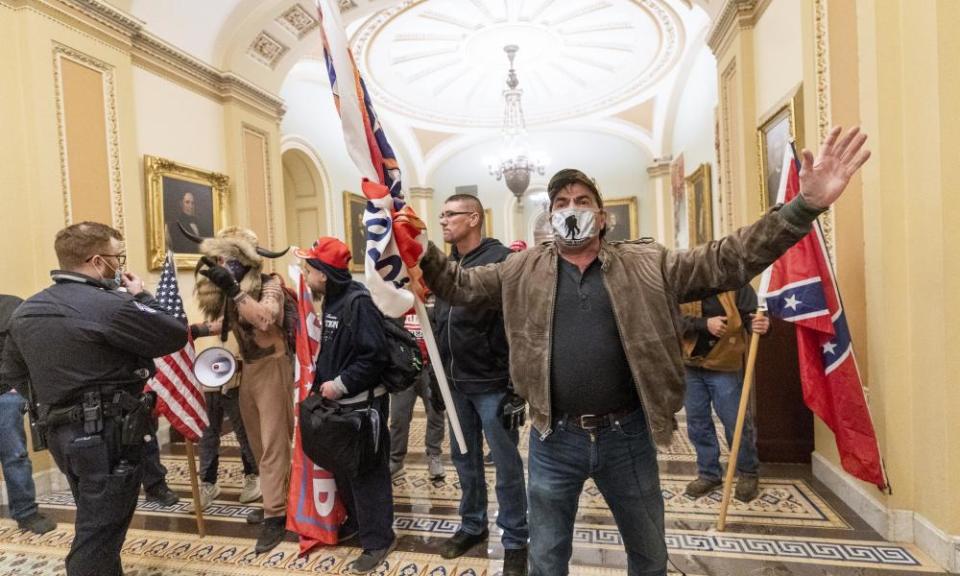The Guardian view on investigating 6 January: the truth about the storming of the Capitol

The investigation into the deadly insurrection of 6 January is not one but two processes. The first is an attempt to discover the truth about those events: not only what happened, but who, beyond the members of the mob, was responsible and in what ways. The second is the task of getting people to accept that truth – knowing that many will not.
Senior Republicans initially acknowledged the horror of the events and the culpability of Donald Trump, whose big lie of a stolen election triggered the assault upon the Capitol to stop the peaceful transfer of power. Kevin McCarthy, the House minority leader – who is said to have telephoned the president urging him to call the rioters off as they tried to break through his office window – said that Mr Trump bore responsibility. He and others called for a 9/11-style independent commission.
Yet since then they have sought to rewrite history and diminish the attack. They blocked a bipartisan proposal for the commission and pulled all their picks from the House select committee when Nancy Pelosi vetoed the nomination of Jim Jordan and Jim Banks, who challenged the legitimacy of Joe Biden’s victory. They vilify two Republicans, Liz Cheney and Adam Kinzinger, who joined nonetheless. And they pretend they did not even listen to the graphic and harrowing testimony of police officers who defended them all against invaders.
In vivid, unforgettable accounts at the committee’s opening hearing on Tuesday, the officers laid out the full brutality and viciousness they endured. They also spelled out why a wide-ranging investigation is necessary. As important and disturbing as the institutional failures of policing were that day, no serious inquiry could limit itself to that scope.
“All of them were telling us, ‘Trump sent us,’” said one officer, Aquilino Gonell. Another, Harry Dunn, told the committee that when a hitman kills someone, “Not only does the hitman go to jail, but the person who hired them does ... A hitman sent them. I want you to get to the bottom of that.”
This was not merely a defence against Republican accusations of a witch-hunt. It was a mandate. It demonstrated that politicians have a duty to establish responsibility for the invasion. But the committee’s work will only get harder from here, as they decide where to focus, what evidence to pursue and which witnesses to call. Bennie Thompson, the committee’s chair, has said he will investigate Mr Trump and depose political allies and key aides: “Nothing is off limits.”
Should the committee subpoena them, it will fuel the belief of Republican voters that this is nothing but a partisan attack; a majority think that the election was stolen. Supporters suggest both that the storming of the Capitol was understandable or justified and that it was not significant at all, but an inconsequential incident; “a normal tourist visit”. A poll in spring found that while more than half of Americans saw the events of 6 January as an attack on democracy that should never be forgotten, almost three-quarters of Republicans said that too much was being made of it.
Though Mr Trump initiated these beliefs, other politicians continue to cynically stoke them: “Nobody actually believes the election was stolen from Donald Trump. But a lot of them are happy to go out and say it was,” Mr Kinzinger observed of his colleagues.
Their behaviour is extraordinary as well as reprehensible: for the sake of their political careers, they seem as reckless about their own safety as they are about democracy’s. They presumably count on staying on the right side of any future mob. Far from deterring the committee from pursuing this investigation fully, their actions and rhetoric should provide a spur. Those who have connived in the attack on democracy need to be held accountable. Whatever the verdict of Republican voters, the truth must be written in the historical record.

 Yahoo News
Yahoo News 